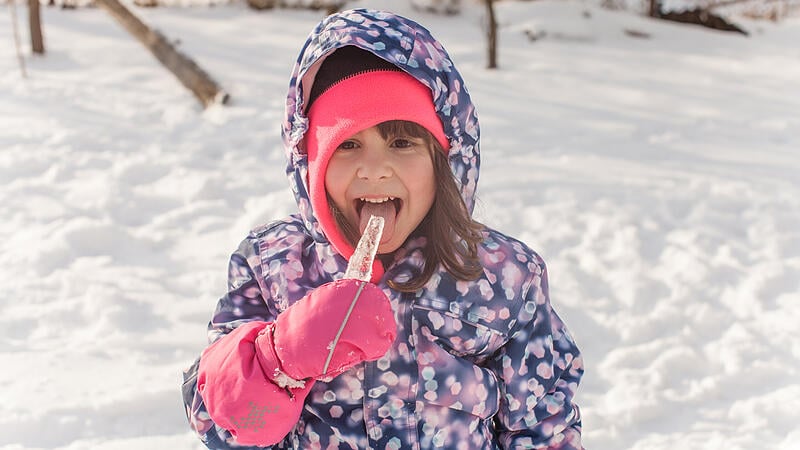Image: cbx
What is good for the human body in the cold season and what is not? The OÖN health editorial team explains the most common winter myths.
- Eating snow makes your stomach hurt: Snow, like rainwater, is contaminated with pollutants from the air. Eating a handful of snow or licking an icicle is not a health risk, not even for children.
- You lose most of your heat through your head: If the body is well wrapped up in warm clothing and only the head is exposed to the cold, we actually lose heat through the head. Only if too little warm clothing is worn on the entire body will the heat be released throughout the entire body. A hood only protects if you are wrapped up warm.
- Vitamin C prevents colds: Previous studies show that taking vitamin C as a preventive measure, even in high doses, has no preventative effect on colds. A sufficient supply of the vitamin – if possible through healthy food – is essential for a functioning immune system.
- The “onion look” provides the best protection against cooling down: Wearing several layers of clothing on top of each other is the best way to store your own body heat. However, it is important that the clothing is made of breathable materials so that moisture can be wicked away when you sweat.
- Fat people freeze less than thin people: Fat people may have more warming fat under their skin, but they also offer more surface area for the cold to attack. People with healthy muscle mass are least likely to freeze because it contracts in the cold and thus warms the body.
- Cold comes from cold: That’s what people used to think. Today we know that viruses cause colds. However, they spread particularly quickly at low temperatures. So the cold can only be indirectly traced back to the cold.
- A sauna is good for a cold: Taking a sauna promotes blood circulation and strengthens the immune system, so a sauna session can have a positive effect against a cold. Attention: If you have an acute cold, the heat is too strenuous for the weakened body!
- A hot bath warms you up: If the water temperature is too high, the body tries to counteract the heat – this puts a strain on the circulation. The bathing temperature should therefore not exceed 38 degrees; you should bathe for a maximum of 20 minutes.
- No exercise in the cold: This is only true for people with acute or chronic respiratory diseases, acute infections and other previous illnesses. Healthy people even benefit from training at low temperatures because the body uses more energy and therefore calories. However, at temperatures below minus 15 degrees, the body can no longer warm up the inhaled air, so exercise should be avoided.
- Alcohol warms: The warm feeling in your stomach is deceptive. When the alcohol level in the blood rises, we feel the cold less. The alcohol actually dilates the external blood vessels and the body gives off even more heat.
My themes
For your saved topics were
new articles found.

info By clicking on the icon you can add the keyword to your topics.
info
By clicking on the icon you open your “my topics” page. They have of 15 keywords saved and would have to remove keywords.
info By clicking on the icon you can remove the keyword from your topics.
Add the topic to your topics.
Source: Nachrichten




